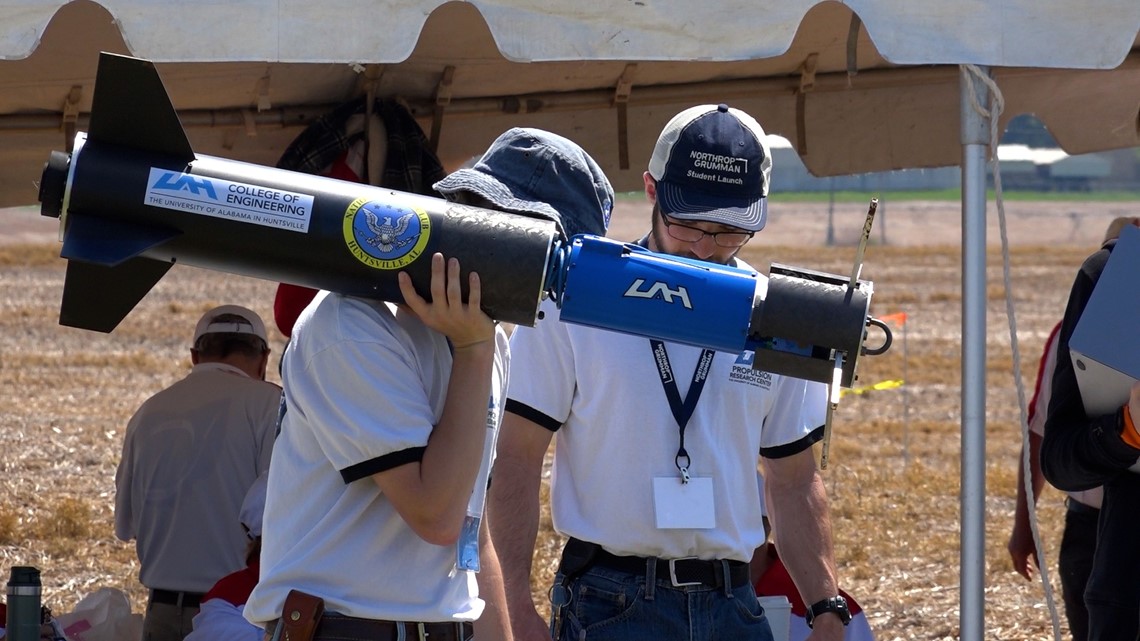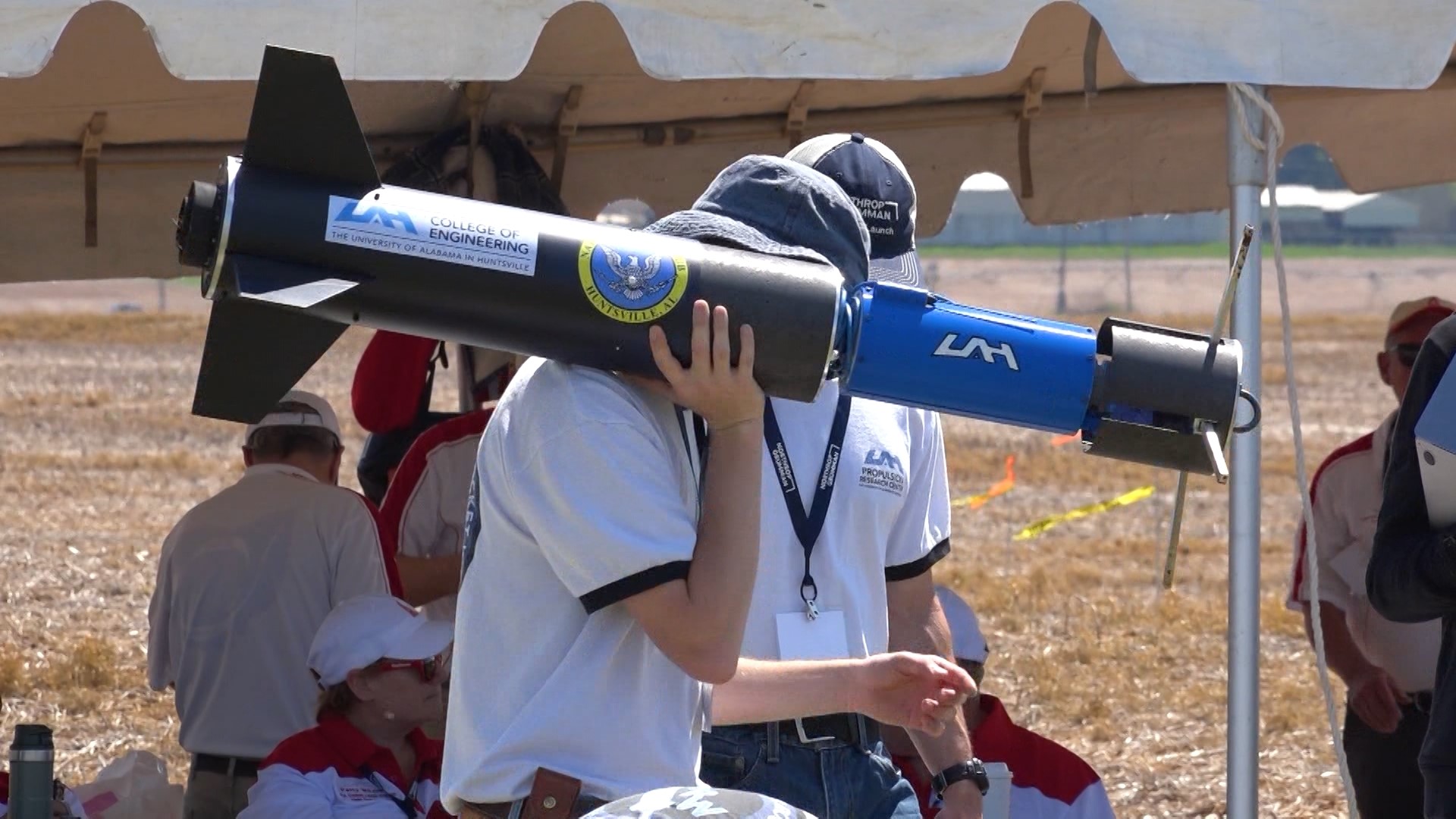HUNTSVILLE, Alabama — NASA’s annual rocket competition for students took place Saturday, hosting more than 50 teams from 21 states and Puerto Rico, with more than 40 teams expected to launch in-person. For 2023, NASA is not requiring teams travel to Alabama, instead providing an alternative launch-from-home option. NASA streamed the competition on their Marshall YouTube page and NASA’s Student Launch Facebook page.
Nearly 800 students from universities, high schools, and middle schools prepared to launch their high-powered amateur rockets and scientific payloads to an altitude between 3,500 and 6,000 feet.
On Friday, many of the participating groups met to go over final preparations in advance of the weekend launch.
Stony Brook University Senior Mechanical Engineering student Michael Dobo is intrigued by aerospace engineering and hopes to one day land a job at NASA. "We have our GPS tracking model inside for this part of the rocket, and then our other side of the rocket, we have our altimeter bay," he said. "This bay basically helps us deploy parachutes from one end of the rocket and helps us deploy parachutes from the other end of the rocket and all the electronics and coding our right inside.
"My only way to really get into that industry was just going to really this competition," Dobo continued.
Another student, MeredIth Patterson, said her team is very lucky to be able to launch tomorrow. "About ten days ago we had a total motor catastrophe that blew up the back half of our rocket," she recalled, "and we basically had to rebuild it. Our payload was destroyed and was rebuilt up to 75% operation in about four days."
University of Central Florida's Brad Potier said his team ran into somewhat of a similar issue. "So, before competition, we had to do two demonstration flights for our rocket for the first demonstration flight, our rocket didn't separate fully into like our one of our main parachutes didn't deploy. so our rocket literally slammed to the ground at 150 miles per hour."
Carson Wirtz also shares the interesting back story behind his team's rocket. "It's always revolves around Norse mythology.'
NASA's Next Gen STEM project manager Carrie Olsen said this challenge is all about students constructing and launching rockets together. "And it's not just that, right? they have to learn to work as a team. they have to use each other's strengths and and compromise."


Saturday: Liftoff Day
A rain day was scheduled for Sunday just in case the weather didn't cooperate Saturday, but there was no need to worry.
Liftoff Day was a chain reaction of activity and glee. With each rocket that went skyward, there were appreciative sounds of awe, applause, and a sense of completion.
The team representing University of Alabama Huntsville said having the contest held in their backyard is exciting and bittersweet; this group happens to be comprised of college seniors.
"It's our first year competing," said Ethan Walker-Jones, who noted it will also be their last. "This is all new to us and we made a lot of new designs and a lot of new ideas."
Alexander Lowney represents the team who traveled all the way from Purdue University to compete. "We always try to innovate our rocket design each year," he said. "This year, we're featuring airfoil fins and continuing to push innovation forward."
From here to beyond
UAH team member Sindhu Belki said her participation was important to her future.
"They come from all walks of life," Belki said. "They have different characters and personalities. That gives you a taste of what it's going to be like to work in the industry."
Belki said she has designs on continuing work in aerospace engineering. "I'm very thrilled to be part of the Artemis age," she said. "I believe that in the future we're going to see women represented equally in all these aspects. I will be there. I will be at the forefront."
NASA will announce the winning teams Tuesday, June 6, 2023, at 1 p.m. CDT during a virtual awards ceremony after all teams’ flight data has been verified.

